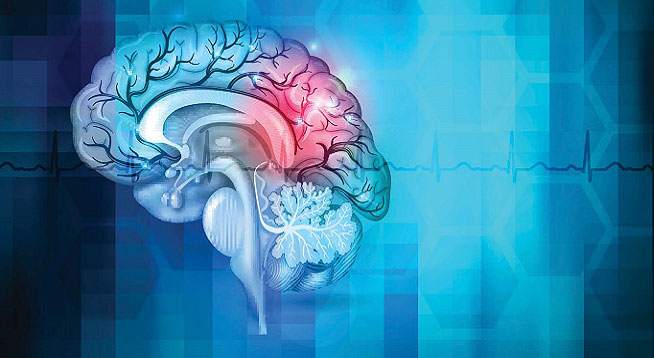An ischemic stroke occurs when the blood supply to part of the brain is interrupted or reduced, preventing brain tissue from getting oxygen and nutrients. Treatments are needed to improve patient outcomes. Now, researchers from Osaka University identified two proteins that reduce inflammation, stimulate neural growth, and improve sensory and motor functions following ischemic stroke in mice.
Their findings are published in Stroke in an article titled, “R-spondin 3/LGR4 (Leucine-Rich Repeat-Containing G Protein-Coupled Receptor 4) Axis Is a Novel Inflammatory and Neurite Outgrowth Signaling System in the Ischemic Brain in Mice.”
“Although stimulation of Wnt/β-catenin signaling is an important strategy to treat ischemic stroke, its signaling pathway has not been fully clarified yet,” wrote the researchers. Recently, RSPO3 (R-spondin 3)/LGR4 (leucine-rich repeat-containing G protein-coupled receptor 4) signaling has resolved TLR4 (toll-like receptor 4)-induced inflammation in lung injury; however, whether this signal is critical in the ischemic brain remains unknown. Therefore, we investigated the role of RSPO3/LGR4 signaling in the ischemic brain.”
“Previous studies showed that RSPO3 was beneficial in lung injuries caused by inflammation,” explained Munehisa Shimamura, MD, PhD, lead author of the study. “We also knew that RSPO3 stimulates a signaling pathway, named the ‘canonical Wnt pathway,’ that promotes neurite outgrowth. We wondered whether RSPO3 reduces inflammation and promotes neurite outgrowth after ischemic stroke.”
The team from Osaka University localized RSPO3 in endothelial cells and LGR4 in microglia/macrophage cells and neurons in the ischemic brain.
“Because of this close localization, RSPO3 could act on LGR4,” explained Hironori Nakagami, PhD, a senior author of the study. “To test this hypothesis, we injected RSPO3 into the brains of mice 24 and 48 hours after ischemic stroke.”
Nine days after the stroke, the researchers observed the mice that were injected with RSPO3 exhibited fewer sensory and motor deficits than mice injected with a control protein. The expression of pro-inflammatory factors was reduced, whereas signs of neurite outgrowth increased. The researchers discovered that RSPO3/LGR4 decreased the expression of TLR4, which is one of the proteins essential for inducing inflammation.
Their findings demonstrate that targeting RSPO3/LGR4 signaling is a promising lead for developing new therapies for ischemic stroke and improving patient outcomes.



